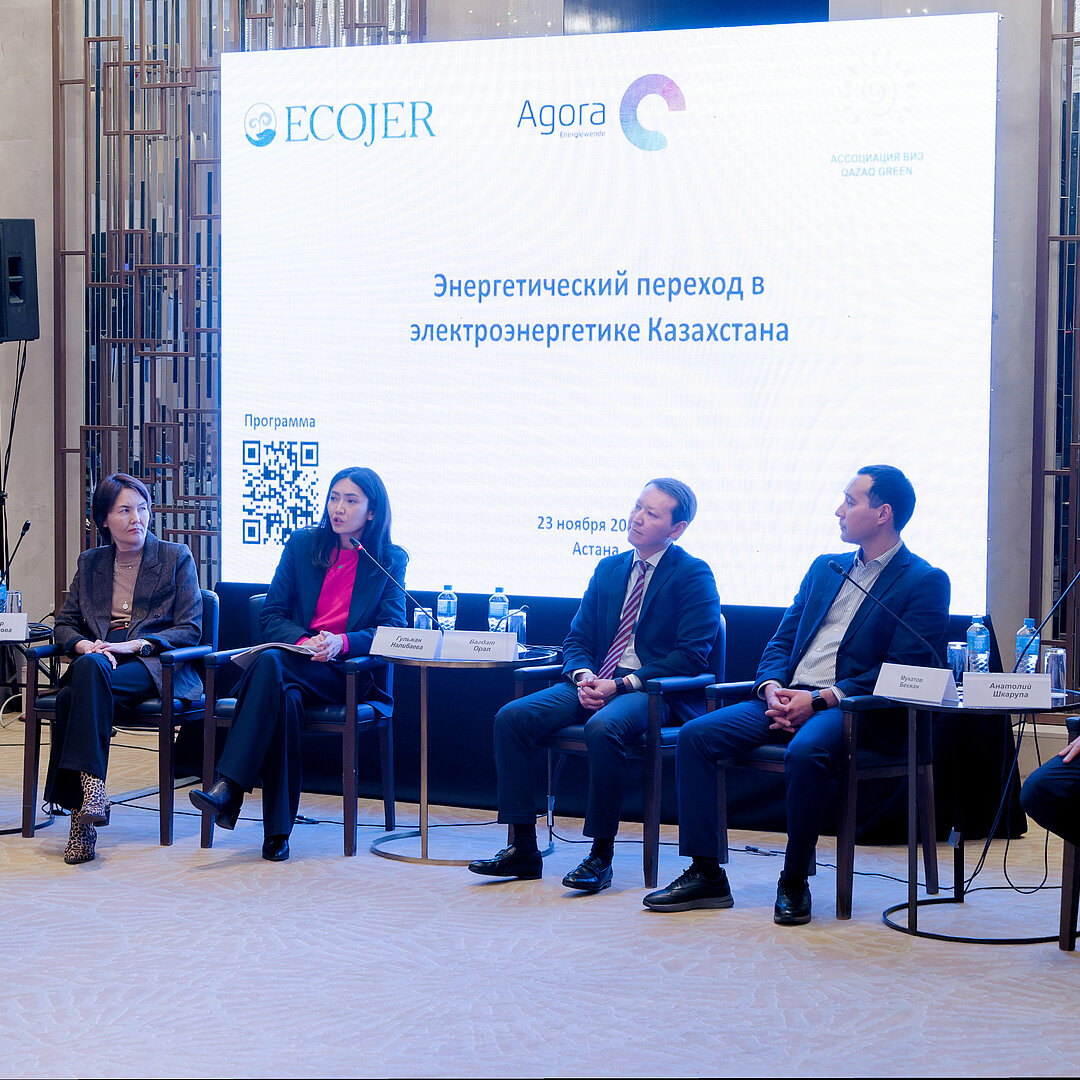Towards a clean energy future in Kazakhstan: designing a robust and fair transition away from coal
By developing a comprehensive, inclusive and long-term strategy to phase down coal, Kazakhstan can diversify and modernise its economy, a new study by Agora Energiewende and Qazaq Green finds. Accelerating efforts to shift away from coal would help ensure the country’s energy transition is both economically sustainable and socially just.

At the COP28 United Nations climate change conference in Dubai last year, the international community agreed for the first time to transition away from oil, gas and coal as part of efforts to reach global climate goals. Kazakhstan, too, has set itself a legally binding target to reach net-zero carbon emissions by 2060 and is in the process of developing its second ‘Nationally Determined Contribution’. However, the country does not yet have a formal strategy to phase down coal.
In the lead-up to COP29, a new study by Agora Energiewende and Qazaq Green outlines a strategic approach for the country to transition away from coal – one that prioritises social and economic sustainability.
A roadmap for a just transition
Having long powered Kazakhstan’s industrial and energy sectors, coal today generates 66 percent of the country’s electricity and 80 percent of residential heating. Furthermore, despite taking preliminary steps towards renewable energy such as solar and wind, Kazakhstan plans to add over 4 GW of new coal capacity by 2029. As global energy dynamics shift away from fossil fuels, this dependence is increasingly at odds with the country’s climate and socioeconomic goals.
Against this backdrop, the study highlights a strategic path forward, drawing lessons from other countries with differing degrees of coal reliance that are already phasing it down. By developing a comprehensive long-term strategy with a focus on economic diversification and renewable energy investment, Kazakhstan can build a more robust, future-proof economy, ensuring a fair transition for communities and industries historically reliant on coal.
The study lays out several key building blocks that would enable an equitable and effective coal transition. First, broad stakeholder engagement is critical for social and political buy-in – from government officials to coal mining companies, power generators, industry workers, local communities and environmental organisations. The authors suggest that Kazakhstan might consider forming an independent coal transition commission modelled for example after Germany’s Coal Commission or Spain’s approach of institutionalising its transition through legislation and specialised agencies. Such an independent body could facilitate transparent, participatory decision-making among the various actors.
Banning new coal power plants and adopting a decommissioning plan with clear timelines for existing ones will be important for putting Kazakhstan on track to phasing down coal. Many coal facilities already face operational challenges such as aging equipment and workforce shortages; an orderly shift to renewables would help avoid costly reinvestments in fossil infrastructure. At the same time, it will be critical to provide targeted support such as reskilling and entrepreneurship programmes for coal mining regions that depend on the industry for jobs and local economic stability. Kazakhstan’s emerging renewable sector, as well as opportunities in energy storage, electric vehicles, renewable hydrogen and waste management sectors, is estimated to create thousands of new jobs, offering reemployment opportunities for some of the current coal workers.
Finally, financial and policy tools are necessary for a smooth transition. Green finance instruments such as green bonds can guide the transition, together with a revision of the existing emissions trading system with a significant reduction in allocated emissions allowances, and policies mandating best-available technologies. Revenues from emissions trading, for instance, could also be reinvested into coal-reliant communities; this resource remains largely untapped in Kazakhstan. International bilateral or multilateral development programmes could also support the country’s transition.
As Kazakhstan navigates its energy future, the study provides a blueprint to harness clean energy for resilience and economic progress. With effective planning and implementation, Kazakhstan can modernise its economy, reduce carbon emissions, and move towards a more diversified economy in line with its 2060 carbon neutrality commitment.
The study “Enabling a just coal transition in Kazakhstan: Opportunities, challenges and strategic pathways” was produced in collaboration with Qazaq Green. The 48-page study offers a detailed analysis of the role of the coal industry in national and regional economies in Kazakhstan, drawing on other countries’ transition strategies and outlining key building blocks for reducing coal dependence. The study is available for free download below.





